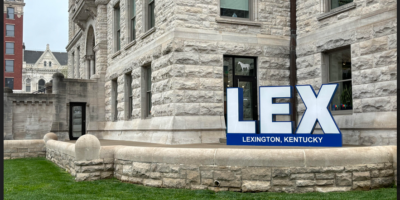Info for the diligent
By Natalie Rae Lile
Almost weekly, a new story hits the national media describing record foreclosure rates, “robo-signing” debacles or the feds cracking down on lenders for improper foreclosure procedures. But these national stories don’t capture the fear, frustration, and heartache that exist in homes throughout central Kentucky. There are state and federal programs available for people who are at risk of losing their homes, but many who have lost jobs, have gone through a divorce, or have become disabled will not be able to successfully qualify for these programs before lenders and their lawyers complete the foreclosure process and take their homes. Once a homeowner loses the ability to fully pay his or her monthly mortgage obligation, it is a race against the clock to save his or her home.
The fact is that lenders routinely continue with foreclosure proceedings when in active discussions with borrowers regarding loan modifications. There are many reasons for this. First, some lenders are so big that most have one department that deals with collection and foreclosure litigation while a completely different department works on loan modifications. These two different groups of people may even be in different cities, and they very rarely communicate effectively. Second, even if the foreclosure arm of a lender knows that the loan modification arm is working on a modification, they will likely not inform the attorney who is in charge of the foreclosure suit, so the attorney goes full steam ahead with the foreclosure, nearly always incurring more expenses, which are added to the amount the homeowner owes the lender in the end, even if a modification is worked out.
It is imperative that homeowners not ignore the legal papers they receive from the courts regarding a foreclosure. Homeowners’ homes will be sold while they are negotiating with the lender for a loan modification. Hire a lawyer, write a letter to the court, show up for a scheduled hearing. Do anything to let the court know you want to keep your home and you are willing to work with the bank.
Recently, a man called the office of the Master Commissioner in Frankfort (The Master Commissioner is the court official who conducts the foreclosure sales on the court house steps. It is his or her job to advertise the sales of the homes in the local newspapers). The man was completely surprised when he read an ad in the local newspaper advertising the sale of his home. He was finalizing the paperwork for a federal home loan modification and assumed that the bank was not moving forward with the foreclosure process.
In fact, the attorney for the lender had gone to court, obtained a default judgment against the homeowner, then went back to court and obtained an order of sale from the judge, granting the lender the right to sell the home and retain any proceeds from the sale. The lender’s attorney canceled the sale at the last minute, but not before incurring an additional $1,500 in costs that will most likely be charged to the homeowner.
Another man, a single father living in Georgetown, was hurt on the job in 2009. He was on unemployment while working with social security to obtain disability payments. Before qualifying for unemployment or disability, he was unable to make his full mortgage payments. His lender filed a foreclosure suit and refused to take any money at all from the man. His house has been scheduled for sale twice, each time while he was working with his lender to apply for a loan modification. Finally, when he received a notice in the mail that his house was to be scheduled for sale for a third time, he hired an attorney. So far, he has not lost his home.
Foreclosures are bad for everyone
The frustrating fact is that mass foreclosures in a down market are bad for everyone. They are bad for the homeowners, bad for the tax base, bad for the neighbors and even bad for the lenders. Statistics show, not only do lenders receive substantially less than they are owed as a result of a foreclosure sale, but, in addition, property values surrounding the foreclosed properties drop, causing a lower local tax base and lower loan to value ratios on existing loans, resulting in collateral coverage issues for local lenders. According to a 2009 report from the Center for Responsible Lending, foreclosures in 2009-2012 will result in a “spillover effect” equaling a $2,238,700,000 decrease in house values statewide, with an average decline of $2,610 per home.
Different states and counties throughout the country are handling the problem of out of control foreclosures differently. Some state legislatures have enacted laws to guard against improper foreclosures. Franklin County, Kentucky recently implemented the Franklin County Foreclosure Diversion Program.
According to a letter sent to the local lenders and attorneys in Frankfort, “Based on a growing concern about the record number of foreclosures in Franklin County, and troubled by instances of unresponsiveness from some lenders and servicing agents, we are implementing the Franklin County Foreclosure Diversion Program. This court-mandated mediation program will bring the mortgage-holder and the property-owner together in order to determine if an alternative to foreclosure is possible.”
So far, no other counties in central Kentucky have official, mandatory mediation programs, but many circuit court judges are sending these types of cases to mediation on a regular basis. The bottom line: even though there are a number of federally- and state-funded programs to help troubled homeowners and to prevent unnecessary foreclosures, at this time, these are having minimal effect and are difficult and frustrating for homeowners to navigate without assistance.
Natalie Rae Lile is a native Lexingtonian and an attorney. She was recently appointed the mediator of the Franklin County Foreclosure Diversion Program. She represents homeowners in Fayette, Scott, Woodford, Shelby and Anderson Counties. She can be reached at natalie@lilelaw.com.
Local Resources for Homeowners:
Reach, Inc., 859-455-8057 (for budget and credit counseling)
Community Ventures Corporation, Loss Mitigation Department, 859-231-0054 or 1-800-299-0267 (for assistance prior to foreclosure and during a foreclosure suit)
Fayette County Bar Association Pro Bono Program, 859-255-7244 (for legal aid)
Kentucky Housing Corporation, 1-866-830-7368 (for assistance for very low, low, and moderate income homeowners, including a program specifically for unemployed homeowners)




Leave a Reply